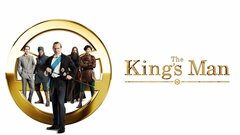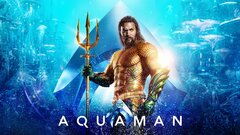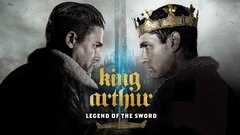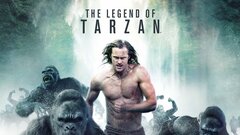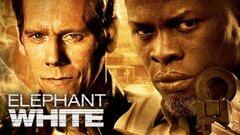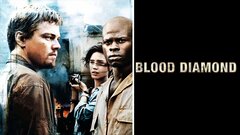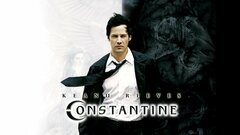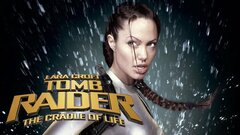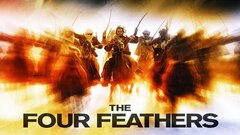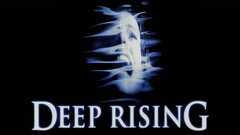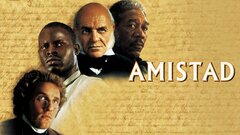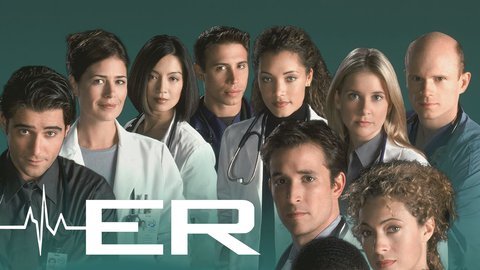Model-turned-actor Djimon Hounsou was seemingly plucked from obscurity by producer Debbie Allen and director Steven Spielberg in 1997 to portray Joseph Cinque, the leader of a slave ship mutiny, in "Amistad." His critically acclaimed performance led to supporting roles alongside Hollywood A-listers in historic dramas like "Gladiator" (2000) and the African-set adventure "Blood Diamond" (2006), which earned the actor significant awards and nominations.
Unsurprisingly, Hounsou's towering frame and expressive features were tapped for a number of forgettable good vs. evil actioners, but he made the strongest mark in character-driven dramas like "In America" (2002) and Julie Taymor's "The Tempest" (2009), where he revealed the uncommon sensitivity and emotional range behind the powerful, commanding presence.
Hounsou was born on April 24, 1964, in a small village in the West African nation of Benin. The youngest of five, Hounsou hid his early dreams of becoming an actor from his parents. When he was 12, his parents sent him to live with an older brother in Lyons, France, hoping that he would get an education and become a doctor or lawyer. But Hounsou grew bored with school and instead of going on to university, he took off for Paris where he drifted around for a period of time before being spotted by a fashion photographer who introduced him to clothing designer Thierry Mugler.
Hounsou modeled for Mugler and others before moving to Los Angeles in the late 1980s to break into acting. He did not know a word of English when he arrived, but no matter. His first string of screen appearances in music videos for Janet Jackson, Paula Abdul and Madonna hinged on showcasing his physique and sex appeal. Thanks to hours and hours spent watching American television, Hounsou eventually learned English and began to land small acting roles, including a bit part as Sandra Bernhard's ex-boyfriend in the comedienne's "Without You, I'm Nothing" (1990).
Following small roles in "Unlawful Entry" (1992) and Steven Spielberg's sci-fi blockbuster "Stargate" (1994), Hounsou shot the independent film "Ill Gotten Gains" (1997) in which he played the leader of an infamous 1869 slave ship revolt. The film received only limited release, but it led to Hounsou's casting by Spielberg in the filmmaker's big budget version of the same story, "Amistad." Hounsou gave a critically acclaimed performance in a role that required a delicate balance of great physical strength and emotional accessibility - not to mention he had to learn to speak the Sierra Leone dialect, Mende, and had only five words of English dialogue.
His compelling performance and mesmerizing screen presence resulted in a Golden Globe nomination for Best Actor, an NAACP Image Award for Outstanding Actor, and a flood of offers. Following the forgettable horror flick "Deep Rising" (1998), Hounsou landed a recurring role on the popular NBC mainstay "ER" (NBC, 1994-2009), where he played a political exile who lands a menial labor job at County General Hospital.
In 2000, Hounsou returned to theaters in a big way, co-starring in the epic "Gladiator" alongside Russell Crowe's Maximus as a fellow slave and confidante. The actor's timeless quality and his track record with historic dramas led to Hounsou's next major screen role as a selfless warrior who helps out a young British officer (Heath Ledger) trying to prove himself in risky combat in the Sudan in the remake of the 1939 film, "Four Feathers" (2002). He went on to give an outstanding performance in writer-director Jim Sheridan's gripping autobiographical film "In America" (2002) as a tortured artist suffering with AIDS who opens his heart to a neighboring family of Irish immigrants in his drug-plagued New York City apartment building.
Hounsou's alternately blistering and soulful performance earned him his first Academy Award nomination as Best Supporting Actor as well as an Independent Spirit Award win and additional nominations from the Image Awards and the Black Reel Awards.
Hounsou's resounding accolades for the contemporary, non-physically dependent role finally opened filmmakers' eyes to the actor's untapped range, which only helped to help the actor make strides towards his goal of becoming a traditional Hollywood leading man. He had supporting roles in the outlaw motorcycle actioner "Biker Boyz" (2003) alongside Laurence Fishburne and joined forces with Angelina Jolie's videogame-inspired heroine in "Lara Croft Tomb Raider: The Cradle of Life" (2003), before returning to primetime in a few appearances on the hit series "Alias" (ABC, 2001-06).
Hounsou next turned up in a brief but compelling stint as the mysterious voodoo practitioner and L.A. club owner Papa Midnight in the comic book-derived horror/action hybrid, "Constantine" (2005). In a refreshing break from the string of high-octane projects, Hounsou provided the romantic spark as the studly electrician who lives above Queen Latifah's hair salon in "Beauty Shop" (2005), a spin-off of the popular "Barbershop" franchise.
The same year, he appeared in a supporting role as the intensely focused head of a private security system trying to recapture a pair of escapees from a cloning facility in Michael Bay's derivative sci-fi thriller "The Island" (2005), starring Ewan McGregor and Scarlett Johansson.
He next appeared in the romantic crime thriller "Blood Diamond" (2006), a sweeping tale directed by Edward Zwick about a South African diamond smuggler (Leonardo DiCaprio) and a poor fisherman (Hounsou) who join forces to find a rare pink diamond that will transform both their lives. Like "Amistad" and "Gladiator" before, "Blood Diamond" launched Hounsou into the critical spotlight again.
He was recognized by the Academy of Motion Picture Arts and Sciences with an Oscar nomination for Best Supporting Actor. He was also nominated by the Screen Actors Guild for Outstanding Performance by a Male Actor in a Supporting Role and took home Best Supporting Actor awards from the National Board of Review and the Washington, D.C. Area Film Critics Association.
Hounsou's co-starring role in "Eragon" (2006), an epic fantasy about a young boy (Ed Speleers) who finds a dragon hatchling which thrusts him into a world of magic and power, came and went without much fanfare. Hounsou went on to enjoy a moderate box office hit with "Never Back Down" (2006), a clichéd actioner where he was well-cast as a martial arts instructor who provides a strong moral voice to a hot-headed teenager (Sean Faris). Off-screen Hounsou was garnering his first real tabloid headlines when he began to romance Kimora Lee Simmons, ex-wife of hip-hop impresario Russell Simmons, and, herself, a successful CEO of Baby Phat Fashions.
In a rare villainous role, Hounsou co-starred in the 2009 sci-fi thriller "Push" as a government intelligence agent who subjects unwilling participants to scientific experiments. Hounsou's talent was much better showcased, however, in Julie Taymor's 2009 film adaptation of Shakespeare's "The Tempest." As Caliban, Hounsou held his own opposite stage veteran Helen Mirren's Prospera, and reinforced his potential as a leading man in high quality, artful filmmaking.
















